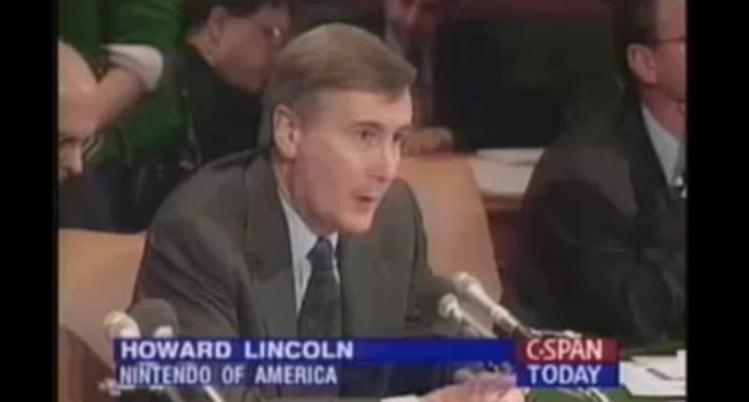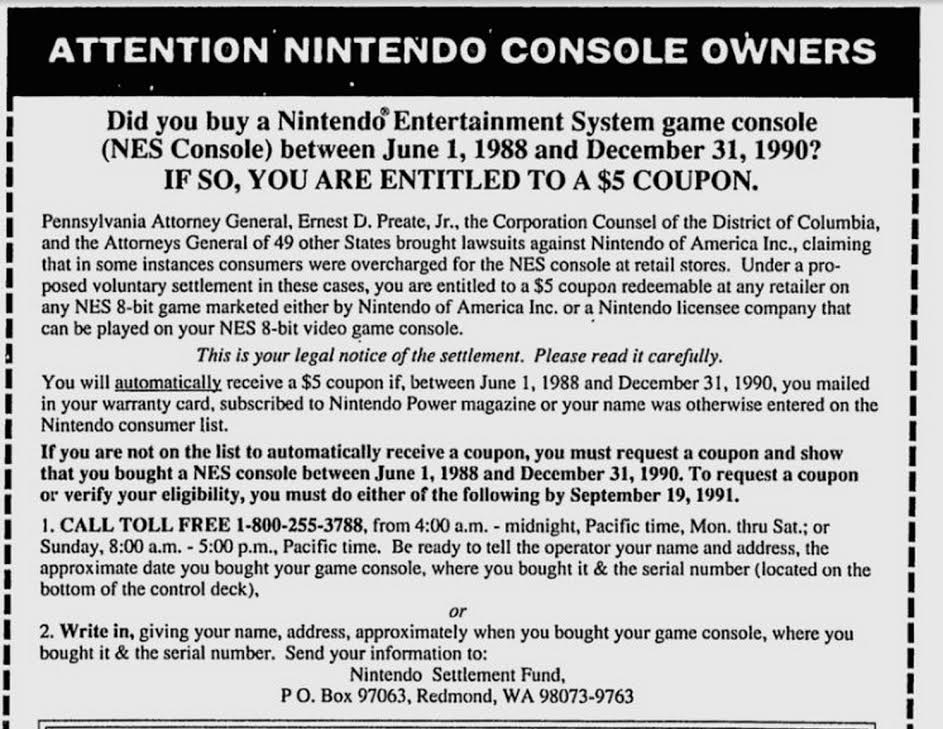If you bought a Vita before June 1, 2012, Sony owes you some money.
The Federal Trade Commission has approved Sony’s plan to offer Vita owners the chance for a $25 refund or a voucher to claim $50 or more in goods in services. While many people will opt for $25 in cash, many others will opt to have that money go directly into their PSN account. Alternatively, even more might go with the $50 voucher. Both of those options are something that Sony would prefer, and both are very similar to a settlement that Nintendo made with the FTC nearly a quarter of a century ago.
Back in 1991, Nintendo announced it would settle a lawsuit with the FTC that alleged the company fixed prices of its products at retail. As explained in the book Console Wars by Blake J. Harris (pages 151 and 152), the attorneys general of all 50 states filed the suit, but Nintendo was able to bring that case to an end by agreeing to pay back $25 million to its customers. Only Nintendo wasn’t going to just hand every one that purchased one of its games or systems a $5 bill. Instead, the company revealed it would send its customers a coupon worth $5 that was good toward any Nintendo product — and the FTC ageed.
 Then-Nintendo of America vice president (and head legal mind) Howard Lincoln devised this plan, and it was widely seen — even at Sega, Nintendo’s chief rival — as an example of the company’s political savvy. And it simultaneously set a precedent that Sony is following today.
Then-Nintendo of America vice president (and head legal mind) Howard Lincoln devised this plan, and it was widely seen — even at Sega, Nintendo’s chief rival — as an example of the company’s political savvy. And it simultaneously set a precedent that Sony is following today.
By giving consumers a coupon for the fraction of the price of a game, many would go into stores and spend much more than that to buy something new. Nintendo would then get to pocket the rest of that cash.
Sony’s agreement tries to emulate that original Nintendo settlement to achieve the same effect. While players can request Sony send them a check through the postal service, many might find it easier to get the $25 in their PSN account. For the latter option, Sony Computer Entertainment America will simply email consumers a PlayStation Network code that they can claim instantly online. Players will then have the option to use that money toward new games — some of which may cost more than $25.
The $50 vouchers are potentially even better for Sony and they reflect an evolution of Nintendo’s original idea. Instead of giving gamers cash or credit, Sony will let claimants choose from three bundles of games that are each worth more than $50. These include a collection of four PlayStation 3 and Vita games. For example, the “Action/Adventure” voucher will give players codes to download God of War Collection (PS3), Beyond: Two Souls (PS3), Twisted Metal (PS3), and Unit 13 (Vita). Sony claims that the total retail value of those games is equivalent to $92.95.
But the thing about all the games in these vouchers is that they are first-party releases. This means that Sony won’t owe any money to third-party developers or publishes, and it can basically just give these games away at nearly zero cost to itself.
Where Nintendo was settling with the FTC over price-fixing, Sony was under scrutiny for misleading consumers about the capabilities of its PlayStation Vita device.
Sony will begin contacting eligible Vita owners soon, but you don’t have to wait. The company has posted a form you can fill out to request your refund, and you can fill that out and file it today by going to vitaclaims.com.
“The Federal Trade Commission has alleged that some [Sony Computer Entertainment America] advertisements for the PlayStation Vita [before June 2012] were deceptive,” reads Sony’s letter to its customers. “Although SCEA neither admits nor denies liability in connection with this matter, SCEA has agreed to settle the dispute with the Federal Trade Commission by offering either cash back (or credit on your PSN account) or merchandise to customers who purchased a PlayStation Vita before June 1, 2012, and who have not returned the product for a full refund.”
Those deceptive practices were related to the Vita’s Remote Play capabilities. Sony’s commercials and other marketing materials claimed the Vita would enable gamers to remote play PS3 games from anywhere, but this functionality was only compatible with select titles. Sony also implied that the cellular-enabled 3G Vita could play live multiplayer games online through that network, which was never the case.
“Companies need to be reminded that if they make product promises to consumers – as Sony did with the ‘game changing’ features of its PS Vita – they must deliver on those pledges,” FTC director of consumer protection Jessica Rich said in a statement in November. “The FTC will not hesitate to act on behalf of consumers when companies or advertisers make false product claims.”
If you know that you bought your Vita before June 1, 2012, then you shouldn’t hesitate to act. Sony will only refund consumers who file the form by June 30.
VentureBeat's mission is to be a digital town square for technical decision-makers to gain knowledge about transformative enterprise technology and transact. Learn More


